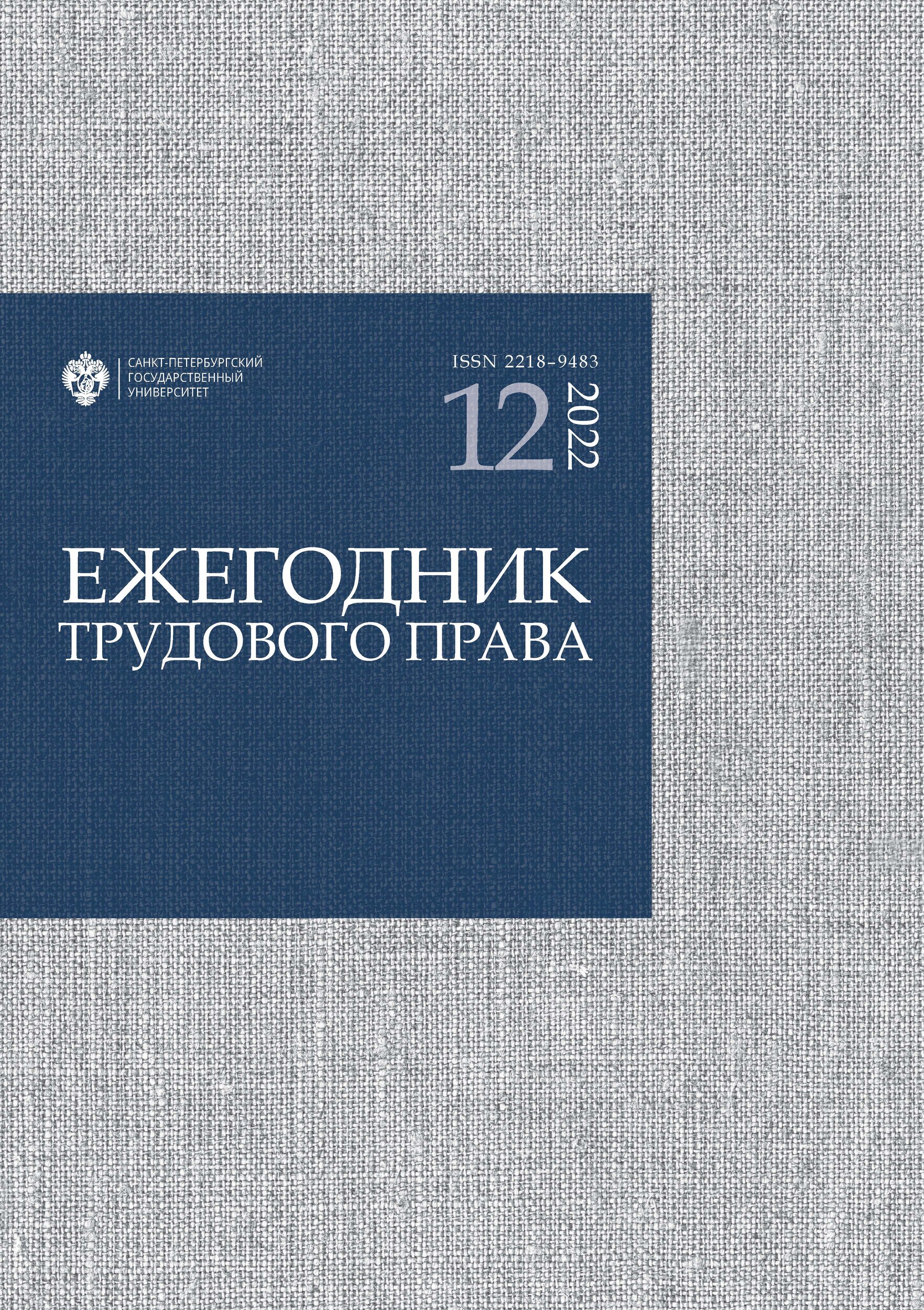Measures taken in the European Union to protect workers during the pandemic
DOI:
https://doi.org/10.21638/spbu32.2022.103Abstract
This article examines EU initiatives prompted by the need to protect the labor market and working citizens in member states, and measures taken at the national level in Germany and France. The EU’s involvement in ensuring protection of workers’ rights in pandemic circumstances has been limited to formulating recommendations to countries and financial assis-tance, as well as prioritizing the social element in European Union policies. This paper examines the Support to mitigate Unemployment Risks in an Emergency instrument developed by the EU in 2020 and the draft directive on an adequate minimum wage in the EU published at the height of the pandemic in autumn 2020. A review of measures in Germany and France focuses on a mechanism to reduce working hours during the period of economic activity restrictions by placing most costs on the state. In Germany, this is the Kurzarbeit (reduced working hours) program. In France, this is the transfer to reduced working hours with the permission of the administrative authority, in the case of lost wages caused by the temporary closure of the company or part of it, or reduction of working hours below the statutory working hours. The author concludes that the rapid economic and labor market recovery in these countries is, among other things, due to the financing of the wages lost due to wage restraint from the state budget. It is of interest to further study the foreign experience of implementing reduced working hours programs for possible use in Russia.
Keywords:
COVID-19, European Union, remote work, short time, unemployment, labour law, digitalization
Downloads
References
Библиография/References
Boeri, Tito, Herbert Bruecker, Nicola Fuchs-Schiindein and Thierry Mayer. 2011. “Short-time work benefits revisited: some lessons from the Great Recession.” Economic Policy 26 (68): 697–765.
Becker, Andreas. 2020. “Money for nothing: Germany starts basic income experiment.” Deutsche Welle. August 31. Accessed July 27, 2021. https://www.dw.com/en/basic-income-germany-tax-free/a-54700872.
Connolly, Kate. 2020. “Kurzarbeit: Germany’s scheme for avoiding unemployment.” The Guardian. September 24. Accessed July 27, 2021. https://www.theguardian.com/world/2020/sep/24/kurzarbeit-germanys-scheme-for-avoiding-unemployment.
Madeline, Béatrice. 2021. “La Banque de France maintient une prévision de croissance supérieure à 5 % en 2021.” Le Monde. 12 avril. Accessed July 27, 2021. https://www.lemonde.fr/economie/article/2021/04/12/la-banque-de-france-maintient-une-prevision-de-croissance-superieure-a-5-en-2021_6076523_3234.html.
Standing, Guy. 2017. Basic income. And how we can make it happen. London: Pelican; Penguin Books, 2017.
Wixforth, Susanne, and Lukas Hochscheidt. 2021. “Minimum-wages directive: it’s legal.” Social Europe. April 8. Accessed July 27, 2021. https://socialeurope.eu/minimum-wages-directive-its-legal.
Downloads
Published
How to Cite
Issue
Section
License
Articles of "Russian Journal of Labour & Law" are open access distributed under the terms of the License Agreement with Saint Petersburg State University, which permits to the authors unrestricted distribution and self-archiving free of charge.




